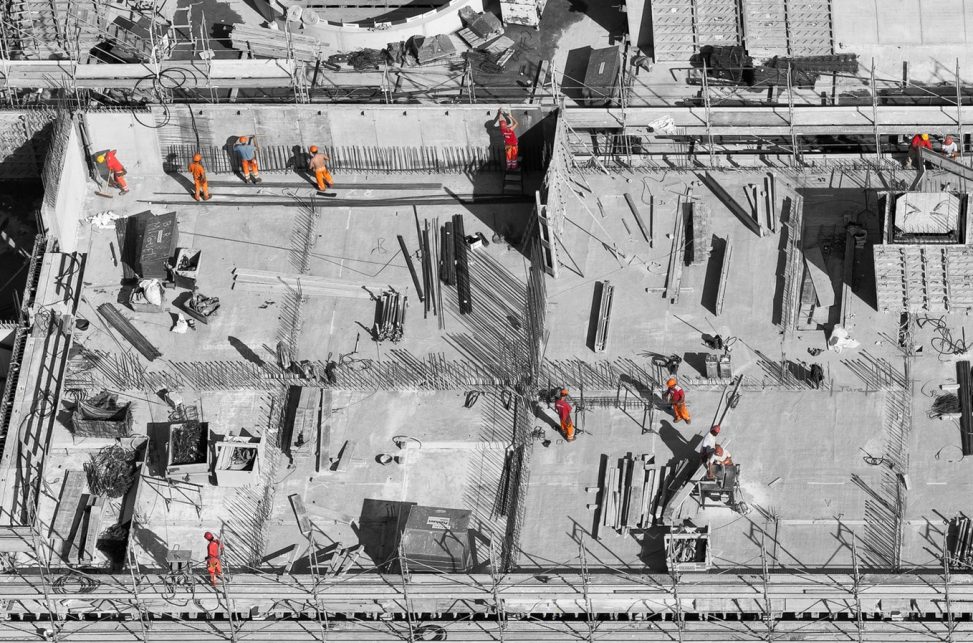(Source)
$1.8 million dollars is the worth of the US construction industry alone, which is set to continue to grow at a steady rate of 3.6% a year. Of course, that growth is only guaranteed if construction sites can continue to make the right decisions when it comes to productivity and project planning. One important aspect of ensuring a construction project is productive and successful is getting the right equipment for the job. Tools, scaffolding and vehicles form an important part of the equipment list, but nothing seems to be quite as important as the generator.
Generators are quite literally, the power behind your project, and if you don’t get the generator right, the project can suffer greatly. If you’re in charge of a construction site and you need some guidance choosing the right generator for project success, read on for our essential ‘how to’ in choosing a generator for your project:
A Confusing Decision
First, let’s be clear – choosing a generator can be tricky. There are lots of options and lots of differing opinions, leaving you confused and often overwhelmed with the pressure of making the right decision. What is important as a first priority is to ensure you treat your project as a specific and unique project. Yes, general advice will help you get your decision right, but the nuances of your specific construction project and most importantly, acknowledging them and taking them into account, will help guarantee your success.
The Maths
Number crunching comes in really handy when you look at getting a generator for your construction project. This should be done before you look into your budget for the generator and start looking for a diesel generator for sale, as it will help you understand which type of generator you need. The physical size of the job is irrelevant because even a tiny site can use large tools, it depends on the actual project.
So do consider what the generator is going to be used for. Which tools is it going to power? Create a list of the tools the generator needs to power and take into account if the usage will be in different locations. For example, you will need to power a welder and circular saw in two different site locations, which changes the wattage you need for each generator compared to needing to power two welders and two circular saws from one generator.
Of course, you also need to consider the wattage needed to power each tool, taking into account the wattage needed to start the tool and to run it, as those figures can be different too. If you get a generator that is too low a wattage it might run your tool, but not be strong enough to start it. Once you’re starting to get rough mathematical figures you should look at adding 15-20% power onto your total to allow for more tools usage or discrepancies.
Different Types Of Generator
This is the area most people get confused, because there is so much choice. Your needs will determine the best generators for you, but it may also be a case of choosing newer and cleaner technology and whether it is worth the extra cost. There are much quieter models of generator available now, but they can cost more because of the fact they are very new to the market.
Cleaner power is also desirable and much more on offer than before because all manner of businesses are responding to the fact that two-thirds of consumers are actively choosing to avoid certain businesses because of environmental concerns. Of course, greener generators also cost extra money, but if you’re looking to get eco-credentials to impress your client or customers then it could be worth the extra cost. You can find out more about the construction industry going green here. There are also notable differences with voltages and which tools run best on clean power though so do speak to your generator supplier about your needs before making any decision on whether to go clean or not.
Quality Comes First
Over everything else, the quality of your generator should be your priority because it needs to be as able to handle the demands of your project as possible. A few different things indicate that a generator is good quality including:
- An excellent generator – the fancy engine surrounds will make no difference if the engine is poor quality
- A good company – an experienced and reputable generator company won’t sell rubbish products
- Quality components – the better the materials used to make the engine, the better quality the overall engine will be
- Aspects of the generator like a really good control panel, low-oil shut down and a quieter engine suggest high quality
It is also extremely important that the generator is safe. Check that it fits in with the regulations in your country to ensure it doesn’t put your site health and safety record at risk. You can find more information about health and safety in your country by following these links:
- Health and safety in construction Australia
- Health and safety in construction UK
- Health and safety in construction America
Research is what i’m doing, when I don’t know what I am doing – Wernher Von Braun
Your generator is your workhorse, so it is important to think carefully about which type you purchase for your construction project. Any project is more likely to be successful with preparation and research, and this really is the case when it comes to construction. This is particularly true when it comes to the tools you choose to supply your workforce with the vital power necessary for project completion.


